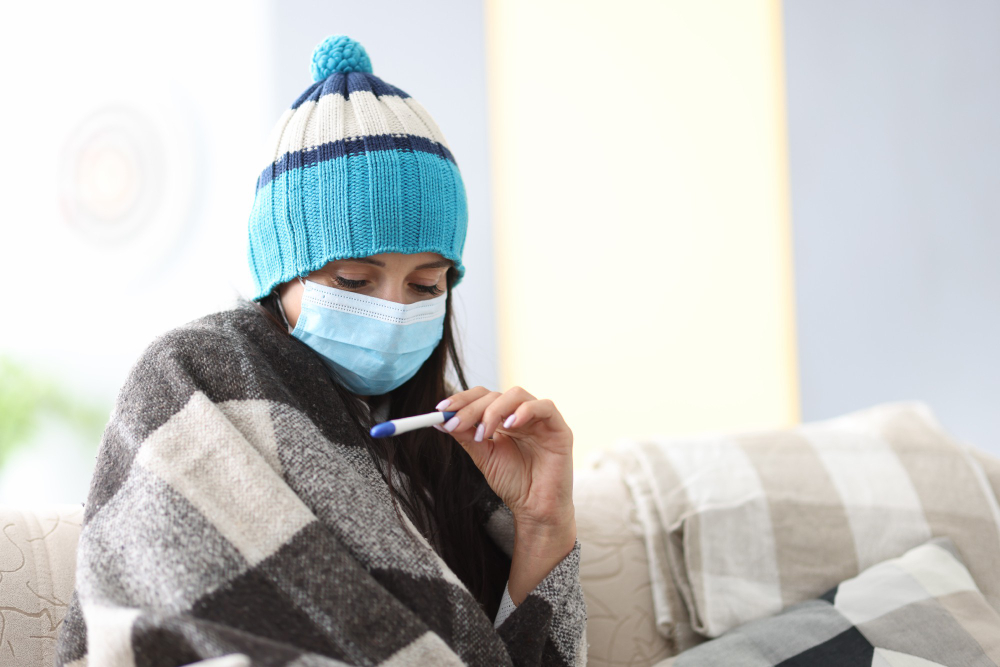As the rainy season kicks in, it brings relief from the scorching summer heat but also a wave of illnesses. The primary purpose of this blog is to highlight monsoon related illnesses and share effective remedies for them. Understanding these illnesses is essential to prevent them. The monsoon season uniquely affects different demographics, such as children, the elderly, and those with weak immunity. By being aware of these illnesses, we can take preventive steps to keep ourselves and our loved ones healthy.
A Look at the Most Common Monsoon-Related Illnesses in 2024
During the monsoon season, several illnesses become more common. These include Dengue Fever, Malaria, Leptospirosis, and Gastrointestinal Infections.
- Dengue Fever is spread by mosquitoes that thrive in stagnant water. Symptoms include high fever, severe headaches, and joint pain. The main risk factor here is getting bitten by an infected mosquito.
- Malaria is another mosquito-borne disease common during the rainy season. It causes fever, chills, and anemia. The risk increases in areas where mosquitoes breed rapidly.
- Leptospirosis occurs due to contact with water contaminated by animal urine. It can cause fever, muscle pain, and headaches. Walking through flooded areas barefoot increases the risk of infection.
- Gastrointestinal Infections are widespread, caused by consuming contaminated food or water. Symptoms include vomiting, diarrhea, and stomach cramps. Risk factors include poor sanitation and eating street food.
Statistics reveal an increase in these illnesses during rainy seasons. For example, cases of Dengue were reported to rise by 20% during the last monsoon.
Understanding these illnesses, along with their common monsoon related illness symptoms, can help us identify and manage them early.
Proactive Prevention: Stay Ahead of Monsoon Illnesses
Staying healthy during the rainy season requires proactive measures. The prevention of monsoon related diseases involves:
- Vaccinations: Ensure your vaccines are up to date, particularly for diseases endemic to your area.
- Routine Check-ups: Regular health check-ups can catch infections early.
- Mosquito Control: Use mosquito repellent and nets to protect against bites.
For children, the elderly, and those with weak immunity, special care is necessary. Children should avoid playing in stagnant water. The elderly might need extra nutrition to keep their strength up. Those with weak immunity should avoid crowded places to reduce the risk of infection.
The impact of climate change on monsoon illness is profound. Changes in weather patterns can lead to more frequent and severe rainy seasons, increasing the risk of disease spread.
Nutrition plays a crucial role in prevention. Here are some immune boosters for monsoon illness:
- Vitamin C-rich foods like oranges and lemons help boost immunity.
- Garlic and turmeric have natural antibiotic properties.
- Warm soups and herbal teas can soothe the throat and provide necessary nutrients.
Consuming these foods regularly can bolster immunity against common monsoon related illness symptoms.
Doctor’s Recommendations for Treatment and Recovery
When dealing with treatment for monsoon related illness, doctors stress early detection and appropriate care. Here are some expert insights:
- For fevers, stay hydrated and rest.
- Avoid self-medication. Always consult a doctor for the right treatment.
Home remedies can complement professional treatment:
- For throat infections, use warm salt water gargles.
- Ginger tea can relieve nausea and stomach discomfort.
While home remedies can aid recovery, it’s crucial to seek medical help if symptoms worsen.
Moreover, maintaining good mental health is vital. The gloominess of rainy days can affect mood. Engage in activities you enjoy and ensure regular exercise, even if it’s just a gentle home workout.
By staying informed about monsoon related illness and medical advice, one can enjoy the season healthily. Remember, prevention is always better than cure.

